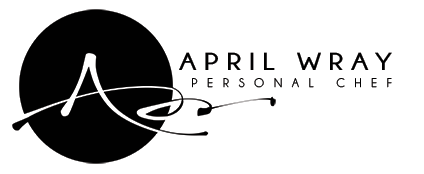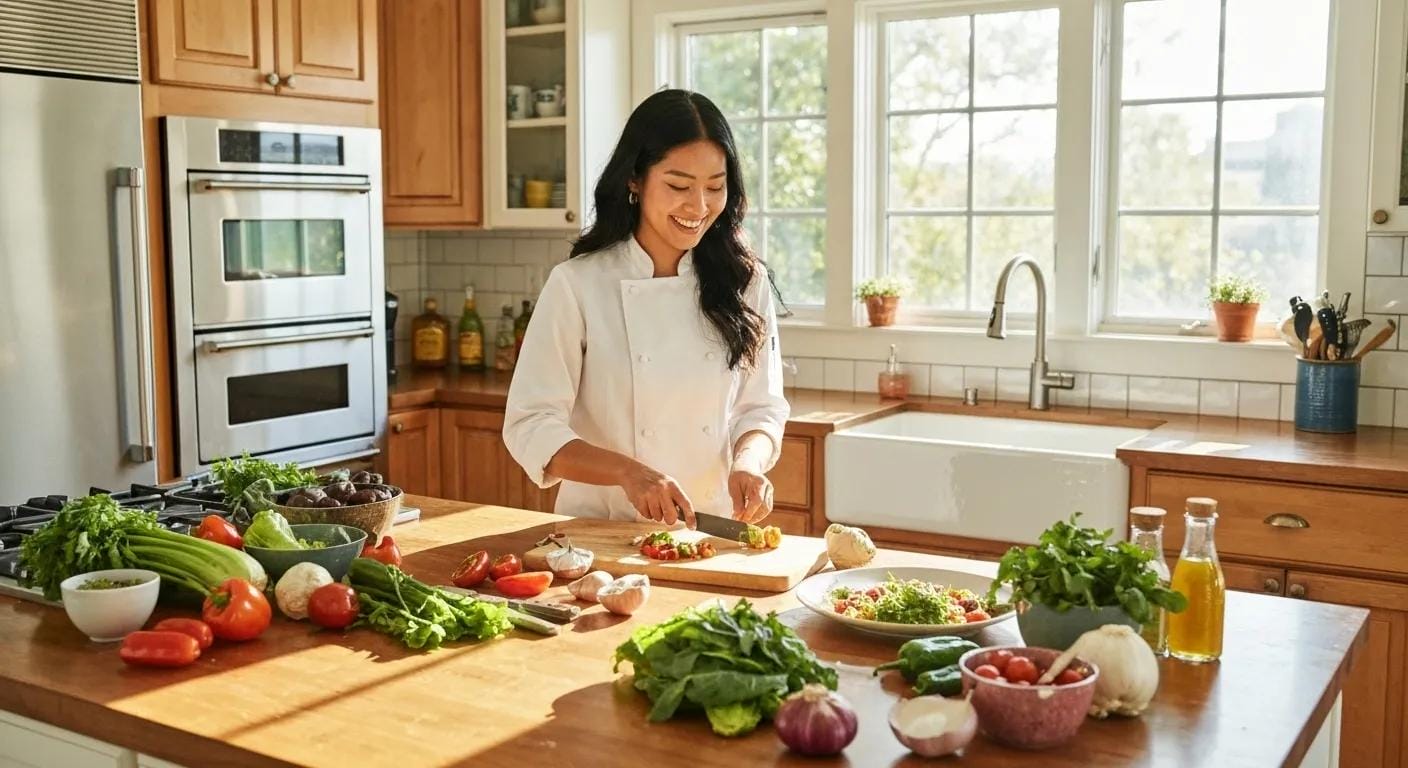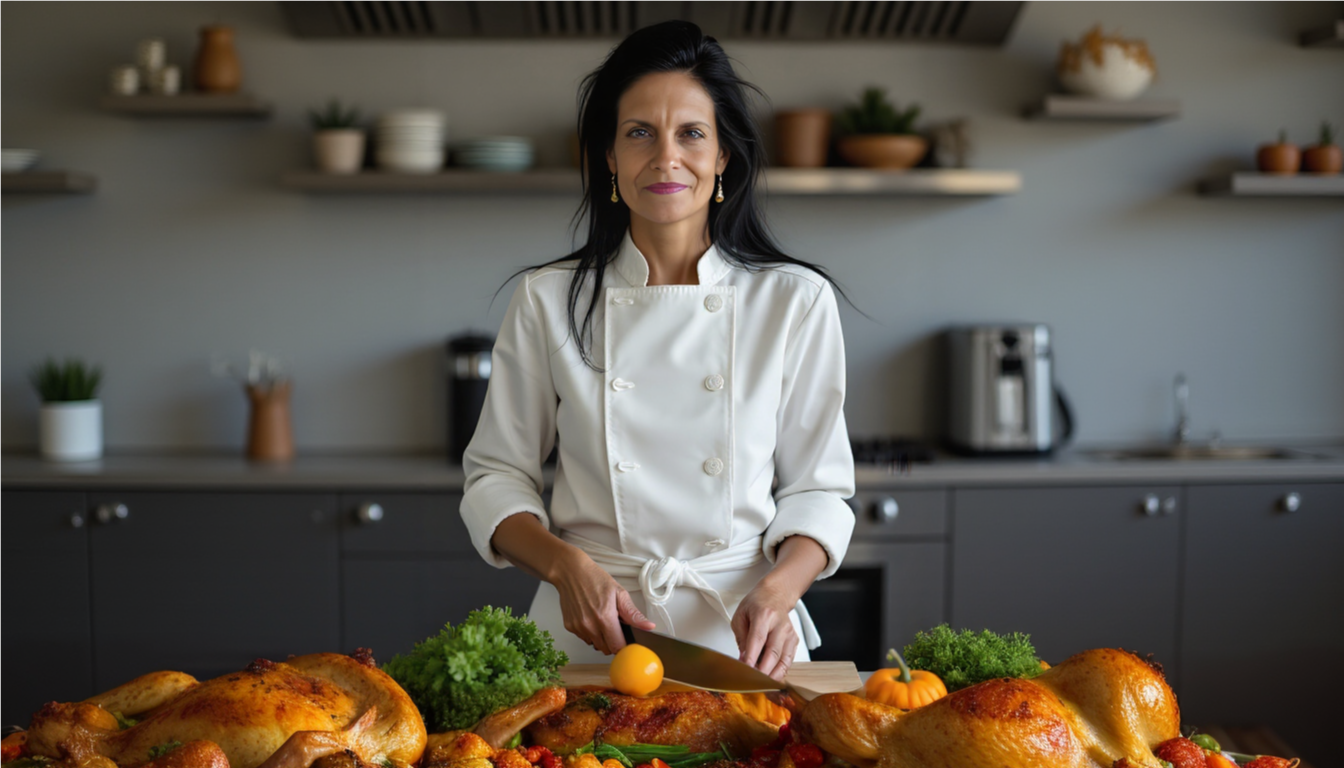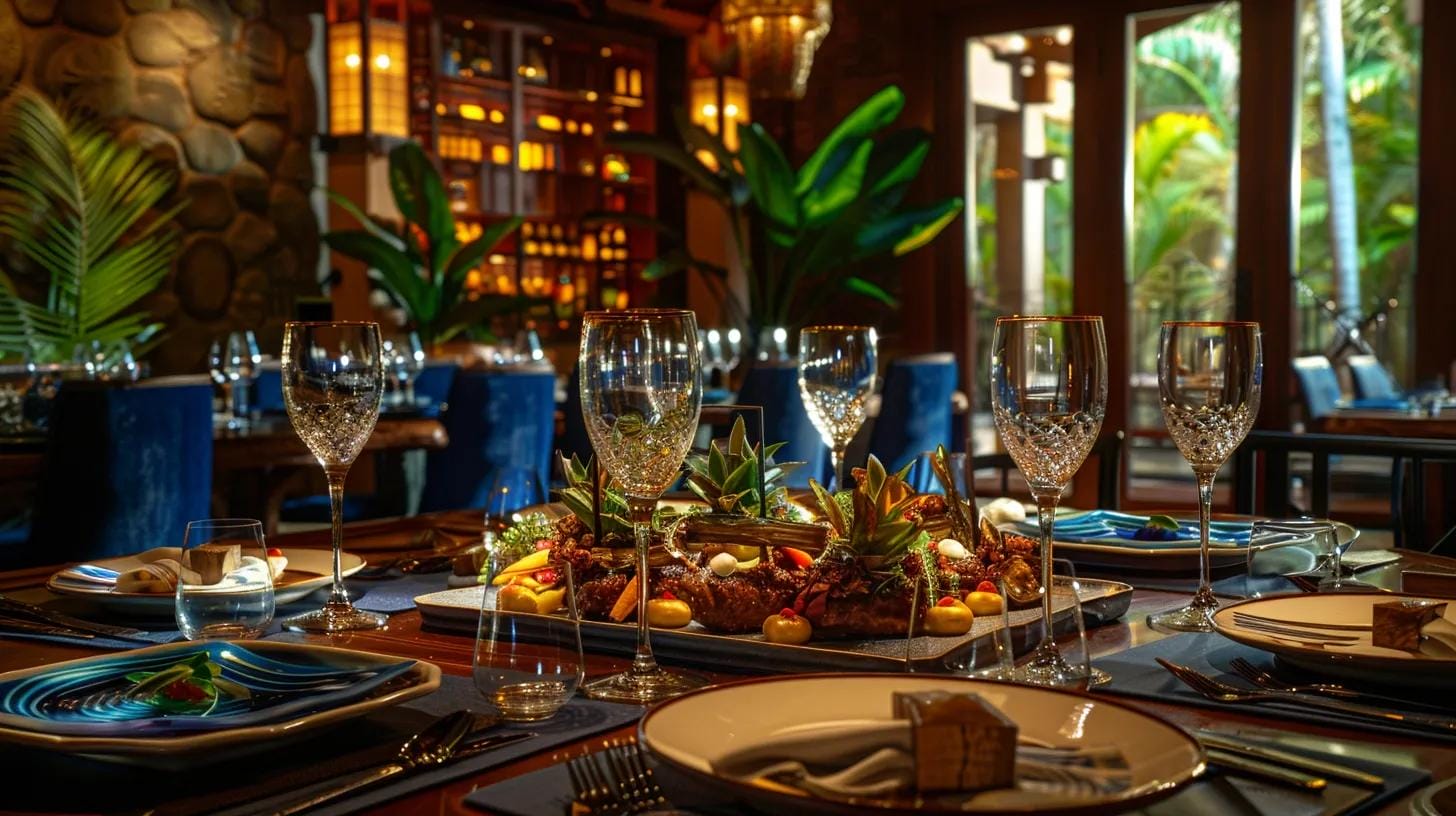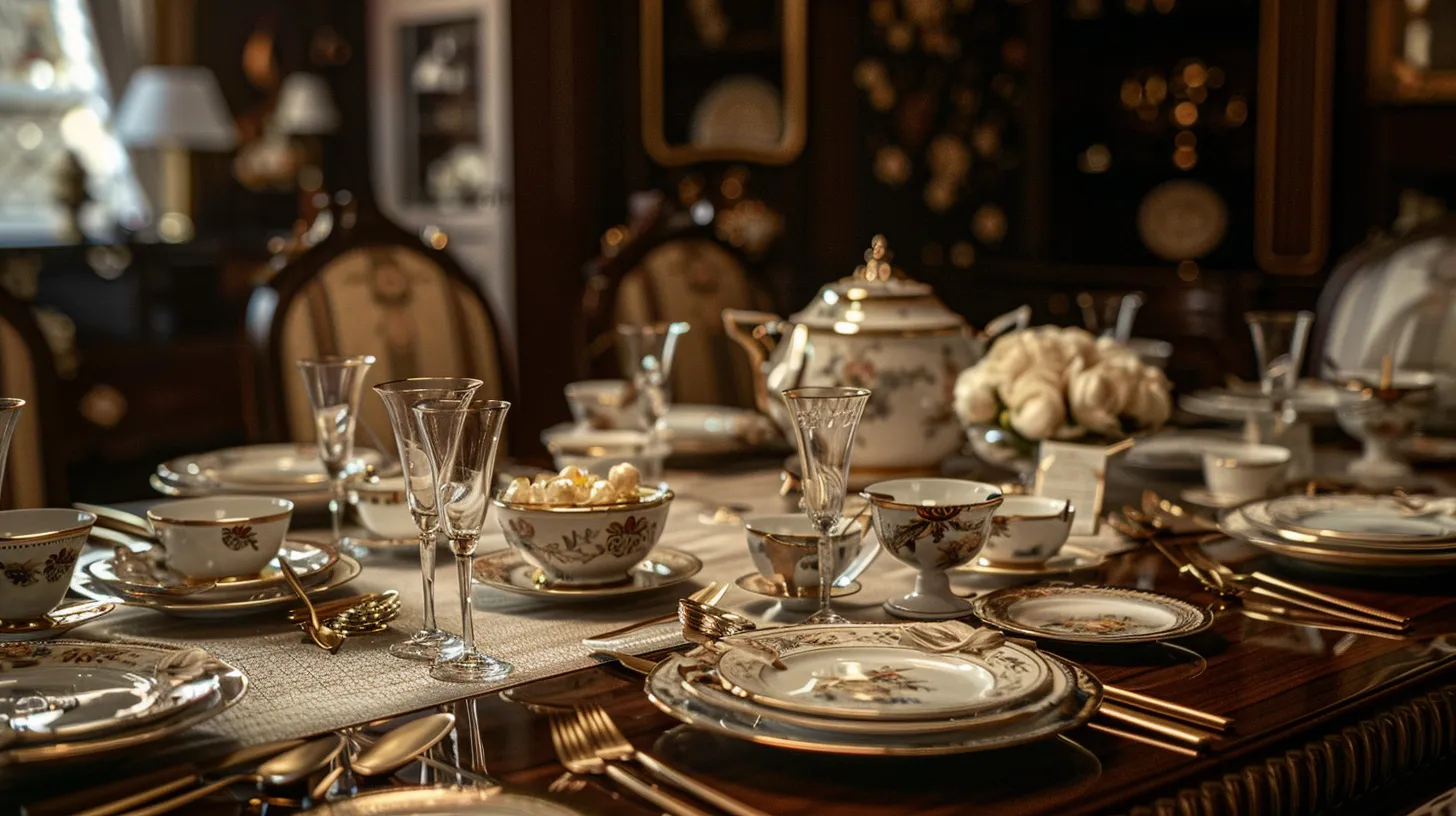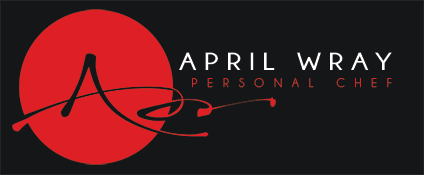Article:
How to Choose the Right Personal Chef Catering Service for Your Event
Inviting a personal chef catering service transforms your gathering into a bespoke culinary experience, ensuring every dish matches your vision and dietary needs. Many hosts struggle with timing orders, managing multiple dishes, and accommodating guests’ restrictions, yet a skilled personal catering chef eliminates those stressors by crafting and serving tailored menus on site. In this guide, you will discover why hiring a personal chef catering service elevates convenience and quality, how it differs from traditional catering, the critical factors to evaluate in your selection, essential vetting questions, strategies for identifying the perfect chef for your event type, pricing expectations, and the step-by-step process to finalize your choice. By weaving expert insights on personalized menus, ingredient sourcing, service style, and cost structures, this article prepares you to choose your personal chef catering partner with confidence and clarity, ensuring your next event is memorable for all the right reasons.
Why Should You Hire a Personal Chef Catering Service for Your Event?
A personal chef catering service delivers a fully customized culinary journey by handling every stage—from menu ideation through post-event cleanup—so you can focus on enjoying time with your guests. By assigning a dedicated professional to manage all meal planning, groceries, cooking, plating, serving, and kitchen restoration, you ensure flawless execution and peace of mind. Beyond basic food delivery, a personal catering chef infuses creativity and attention to detail that reflect your occasion’s theme and your guests’ preferences, creating an intimate and unforgettable dining atmosphere. Understanding these benefits lays the groundwork for comparing service models against traditional catering.
What Are the Key Benefits of Personal Chef Catering?
Below is a list of the primary ways personal chef services enhance events:
- Personalized Menus That Reflect Your Vision
- Seamless End-to-End Event Management
- Exceptional Ingredient Quality and Presentation
- On-Site Preparation for Freshness and Temperature Control
- Flexible Service That Adapts to Real-Time Changes
Each benefit contributes to an elevated hosting experience by ensuring that every culinary element aligns with your unique goals and guest profiles, setting the stage for stress-free entertaining.
How Does a Personal Chef Create a Stress-Free Hosting Experience?
A personal chef alleviates planning burdens by consulting on menu themes, procuring ingredients, and orchestrating service schedules. This comprehensive approach—from designing courses around your event’s flow to executing precise plating and wrapping up with kitchen cleanup—frees hosts to focus on conversation rather than timing dishes. Such turnkey solutions transform hosting from a task into an effortless, memorable celebration that flows seamlessly into the evening’s festivities.
Why Is Menu Customization Important for Your Event?
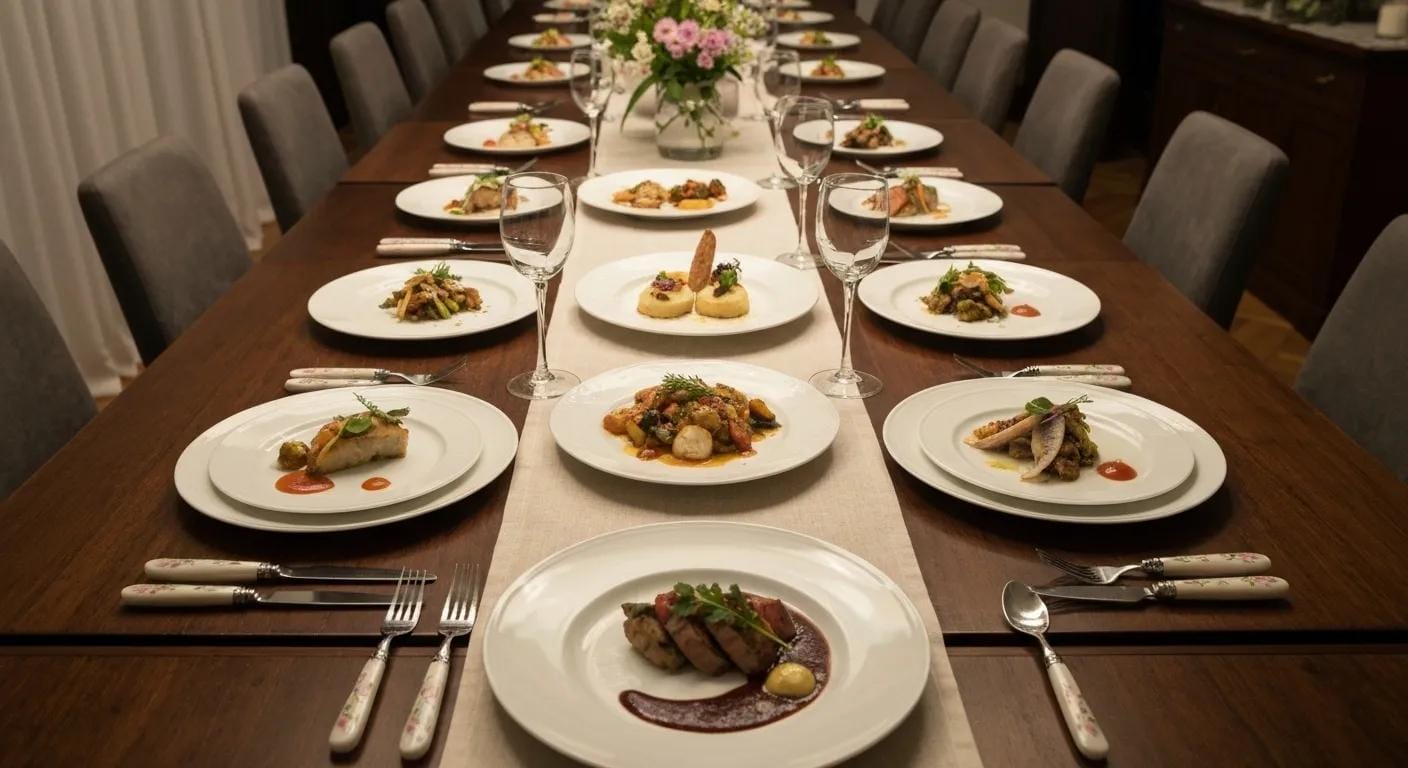
Tailoring a menu allows you to address individual dietary requirements, cultural preferences, and thematic inspirations. By crafting dishes around allergies, vegan or keto diets, and favorite flavors, a personal catering chef ensures every guest feels considered. Custom menus also provide an opportunity to showcase signature items—whether a seasonal farm-to-table salad or a decadent fusion dessert—reinforcing the personal touch that makes your gathering distinctive.
Benefits of Personalized Menus
Personalized menus allow for the accommodation of dietary needs and preferences, ensuring every guest feels considered and enhancing the overall dining experience. This customization can include options for allergies, specific diets, and cultural preferences, making the event more inclusive and memorable.
Smith, A., “The Art of Culinary Customization” (2022)
This research supports the article’s emphasis on the importance of menu customization in personal chef catering.
How Do Personal Chefs Use High-Quality and Local Ingredients?
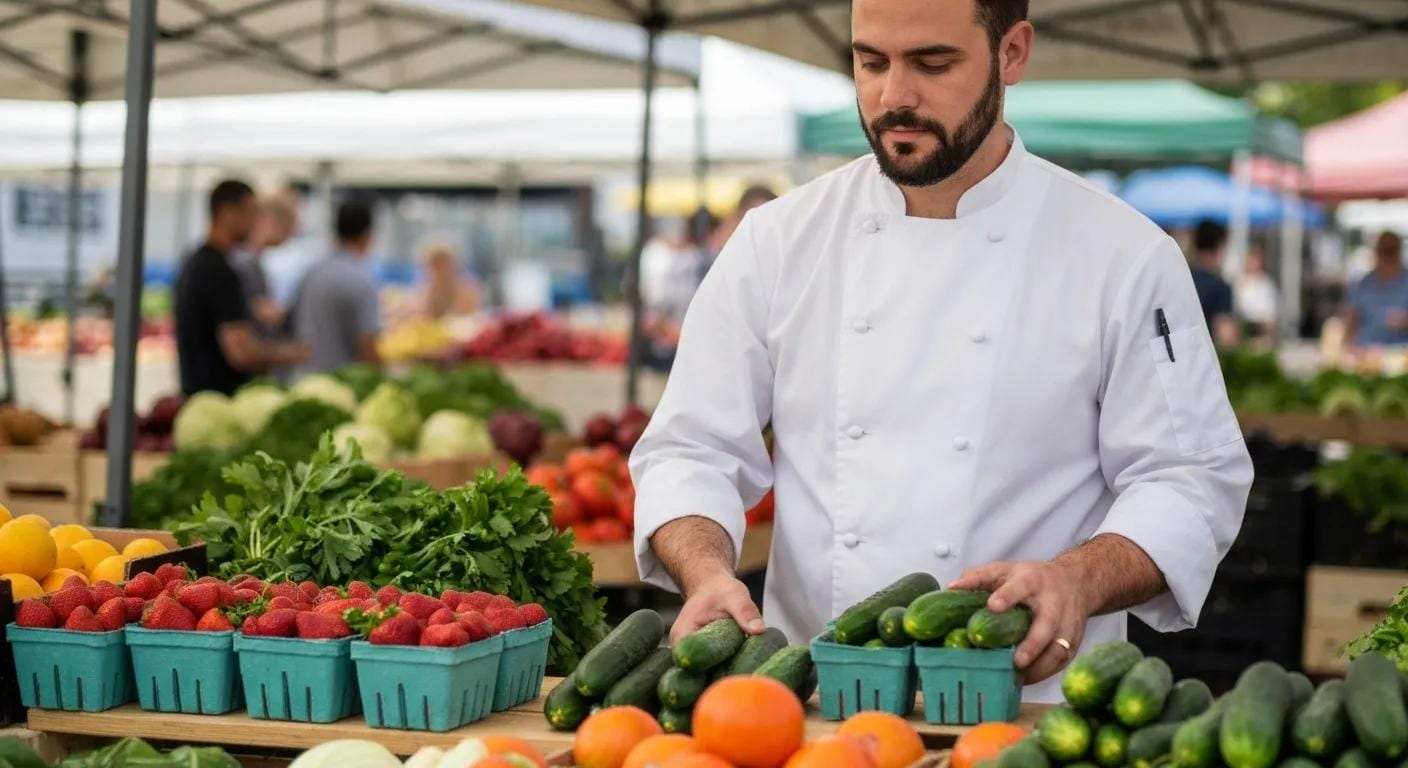
Personal chefs prioritize sourcing from local farms, artisanal purveyors, and sustainable producers to secure peak-fresh ingredients. This practice not only enhances flavor profiles but also supports community agriculture and reduces environmental impact. By selecting seasonal vegetables, heritage grains, and ethically raised proteins, chefs elevate taste and presentation while aligning with eco-friendly hosting principles, creating a dining experience that resonates with conscientious guests and underpins your event’s quality promise.
Sourcing High-Quality Ingredients
Chefs often prioritize sourcing ingredients from local farms and sustainable producers to enhance flavor and support community agriculture. This practice not only improves the taste and presentation of dishes but also aligns with eco-friendly hosting principles, appealing to guests who value sustainability.
Jones, B., “Sustainable Sourcing in Modern Cuisine” (2023)
This citation reinforces the article’s point about the benefits of using high-quality and local ingredients.
How Do Personal Chef Catering and Traditional Catering Differ?
Personal chef catering offers intimate, in-home experiences focused on bespoke menus and hands-on service, whereas traditional catering typically manages large-scale events with preset menu packages and off-site preparation. The chart below clarifies the distinctions in service model, customization, and cost dynamics.
How Do Service Styles Differ Between Personal Chefs and Caterers?
Personal chefs offer a chef-at-work feel, preparing and plating meals directly in your kitchen, while caterers typically stage food off-site and deliver buffets or plated courses with separate service teams. Such hands-on methods foster engagement and ensure optimal presentation, contrasting with exterior prep and transport practices common to traditional catering.
What Are the Cost Differences Between Personal Chef and Catering Services?
A personal chef’s fees often combine ingredient costs, chef labor, and service hours into clear per-person or flat-rate pricing, whereas traditional caterers may quote package tiers with surcharges for staff, equipment, and rentals. Understanding both models helps you align budget expectations with desired service levels and menu intricacy.
How Does Menu Flexibility Compare in Personal Chef vs. Catering?
With a personal chef, you can refine each course—selecting ingredients, portion sizes, and plating styles—until it matches your vision. Traditional catering generally offers a limited menu roster, restricting creativity to preset combinations and requiring additional fees for specialty requests, which can hamper bespoke planning.
What Factors Should You Consider When Choosing a Personal Chef Catering Service?
Selecting the ideal personal chef involves evaluating professional credentials, culinary style adaptability, transparent pricing, and reputation. By examining each criterion carefully, you ensure your chosen chef can deliver on taste expectations, dietary needs, and service reliability. These considerations guide hosts toward a partnership that aligns with both logistical goals and experiential aspirations.
How Important Are Experience and Qualifications of the Personal Chef?
Experience and formal training signal a chef’s ability to handle complex menus, large guest counts, and adapt to on-site variables. Look for culinary degrees, professional certifications, and a track record of events similar in scale and style to yours. Verified expertise fosters confidence that your menu will execute flawlessly under pressure.
How Can You Evaluate Menu Customization and Dietary Accommodation?
Review sample menus and ask for detailed strategies on managing allergies, intolerances, and specialized diets. A skilled personal chef will outline substitution protocols, cross-contamination safeguards, and test kitchen processes that uphold both creativity and safety. Clear accommodation plans ensure inclusivity and peace of mind.
What Should You Know About Pricing and What’s Included?
Request detailed breakdowns of per-person rates, ingredient markups, labor hours, equipment rentals, and gratuities. Transparent quotes prevent unexpected fees and allow you to compare like-for-like offers. A comprehensive pricing overview clarifies budget alignment and highlights any value-added services.
Why Are References and Reviews Essential Before Hiring?
Feedback from past clients demonstrates consistency, professionalism, and culinary flair. Testimonials reveal how chefs handle challenges, communicate during planning, and preserve kitchen integrity. Positive reviews and referrals assure you of a chef’s reliability and guest satisfaction record.
What Role Do Insurance and Permits Play in Choosing a Chef?
Liability insurance, food handler permits, and compliance with local health codes establish a chef’s commitment to safety and professionalism. Confirming these credentials protects you against potential liabilities and ensures adherence to regulatory standards, reinforcing trust in your culinary partner.
What Essential Questions Should You Ask Before Hiring a Personal Chef Catering Service?
Effective vetting begins with targeted questions that uncover a chef’s expertise, flexibility, policies, and professional credentials. These inquiries form the backbone of a clear contract and align expectations, protecting hosts from miscommunication and service gaps.
Which Questions Help Assess the Chef’s Experience and Style?
- “Can you share examples of events where you handled similar guest counts and cuisine themes?”
- “What formal culinary training or certifications do you hold?”
- “How do you incorporate seasonal or regional influences into your menus?”
What Should You Ask About Menu Options and Dietary Needs?
- “How do you accommodate allergies, intolerances, and special diets?”
- “Can you provide sample menus for vegan, gluten-free, or keto diets?”
- “Do you perform taste tests to refine menu items before the event?”
How Do You Confirm Pricing, Services, and Policies?
- “What is included in your service fee and what constitutes an extra charge?”
- “What is your cancellation or rescheduling policy?”
- “Do you require a deposit, and how is the final payment structured?”
What Questions Ensure the Chef’s Professionalism and Reliability?
- “Do you carry liability insurance and the necessary local permits?”
- “Can you provide references or online portfolios of past events?”
- “How do you manage staff shortages or equipment failures on event day?”
How Can You Find the Best Personal Chef Catering Service for Your Specific Event?
Whether you host a refined dinner party, corporate luncheon, or intimate wedding, aligning a chef’s specialties with your event type ensures a tailored experience. By exploring service niches, chef backgrounds, local sourcing commitments, and booking platforms, you can pinpoint the perfect match for your next occasion.
What Personal Chef Services Are Available for Different Event Types?
How Do Chef Specializations Affect Your Event Experience?
- Chefs specializing in regional cuisines bring authenticity and cultural depth.
- Vegan or paleo experts craft nutritionally balanced dishes without compromise.
- Pastry chefs elevate dessert courses with artistic presentations.
Why Should You Consider Local and Sustainable Personal Chefs?
Hiring chefs who source locally and prioritize sustainable practices ensures fresher ingredients, supports community producers, and underscores eco-friendly values. These partnerships often yield seasonal menus that enhance flavor complexity and reinforce your event’s commitment to responsible hosting.
How Can Technology Help You Book and Manage Personal Chef Services?
Online platforms and mobile apps allow you to compare chef profiles, review menus, schedule consultations, and process payments seamlessly. Integrated communication tools keep planning organized and accessible, ensuring that every menu adjustment and logistical detail is tracked from inquiry through event execution.
How Much Does Hiring a Personal Chef Catering Service Cost for Your Event?
Understanding the cost landscape for personal chef services prepares you to allocate funds effectively and avoid unexpected charges. By examining typical price ranges, structuring models, and cost-influencing factors, you can select a service that aligns with both your budget and culinary aspirations.
What Is the Typical Price Range for Personal Chef Services?
Personal chef catering fees generally start around $60 per person for basic multi-course dinners and can exceed $200 per person for exclusive, multi-hour experiences. Factors such as menu complexity, rare ingredients, and service duration drive pricing toward higher tiers.
How Is Pricing Structured: Per Person, Per Event, or Package?
- Per Person: Transparent, scalable rates ideal for guest-count flexibility.
- Per Event: Flat fees cover all guests, suitable for fixed budgets.
- Package Deals: Bundled menus, staff, and equipment at tiered price points.
What Factors Influence the Final Cost of Personal Chef Catering?
- Menu Complexity and Ingredient Rarity
- Number of Guests and Staffing Requirements
- Equipment Rentals and Setup Logistics
- Travel Distance and On-Site Service Duration
What Are the Steps to Vet and Select Your Personal Chef Catering Service?
Following a structured selection process—from verifying credentials to finalizing contracts—streamlines your decision and secures a culinary partner who meets your standards. These steps build confidence and ensure every aspect of your event’s catering is in expert hands.
How Do You Verify Credentials and Experience?
- Request copies of culinary certifications and resumes
- Review portfolios of past events with similar scopes
- Confirm insurance coverage and health code compliance
What Role Do Client Reviews and Testimonials Play?
- Online reviews provide unbiased feedback on performance
- Detailed testimonials highlight problem-solving and creativity
- Ratings reveal consistency across multiple events
How Should You Conduct a Tasting or Consultation?
- Schedule a menu tasting to sample and refine dishes
- Discuss event flow, plating styles, and service timing
- Validate portion sizes and presentation preferences
What Are the Final Contract and Agreement Considerations?
- Confirm deliverables, payment schedules, and cancellation terms
- Specify liability insurance, permit responsibilities, and indemnifications
- Outline contingency plans for substitutions or unexpected issues
Bringing together these insights empowers you to choose a personal chef catering service that harmonizes culinary craftsmanship with flawless logistics. By focusing on customization, professional credentials, transparent pricing, and clear communication, your event will shine with the personalized touch that only a dedicated personal chef can deliver.
